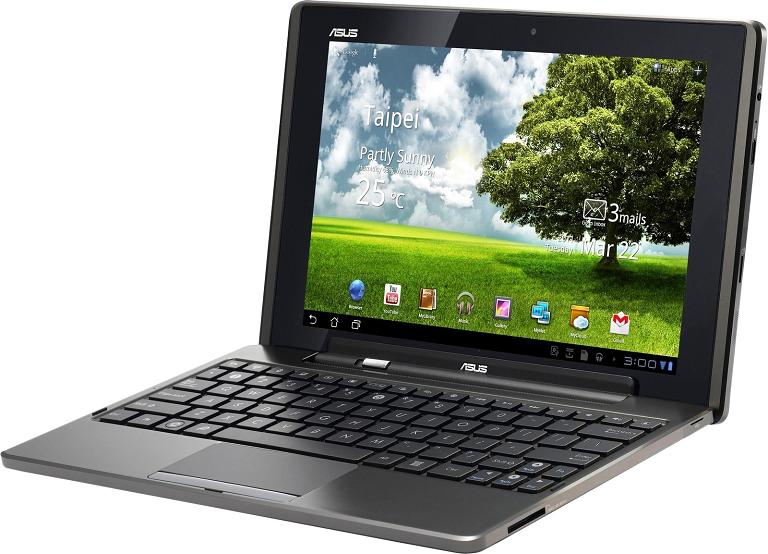 NEWS
NEWS
 NEWS
NEWS
 NEWS
NEWS
![]() Just last week we heard straight from the horse’s mouth that touch-friendly notebooks based on Intel’s new “Bay Trail” atom processor would be available for as little as $200. At that time, Intel CEO Paul Otellini was remarkably upbeat about Bay Trail’s prospects, proclaiming that the devices it powers will help to drag laptop and PC sales back from the abyss.
Just last week we heard straight from the horse’s mouth that touch-friendly notebooks based on Intel’s new “Bay Trail” atom processor would be available for as little as $200. At that time, Intel CEO Paul Otellini was remarkably upbeat about Bay Trail’s prospects, proclaiming that the devices it powers will help to drag laptop and PC sales back from the abyss.
Few will argue that there should be plenty of takers for a $200 laptop if they’re as capable as Intel claims they will be. But guess what? Those new laptops won’t all be running on Windows… Instead, the majority of them will probably be powered by Android.
That’s right, $200 Android laptops are on the way, or at least they are according to Intel’s Chief Product Officer Dadi Perlmutter, who told Cnet that Windows machines were unlikely to sell at that price point.
“We have a good technology that enables a very cost-effective price point. The price of Windows 8 laptops depends on how Microsoft prices Windows 8. It maybe a slightly higher price point,” revealed Perlmutter.
There have been some strong rumors that Microsoft might slash the price of its Windows 8 licenses, but to date nothing has been confirmed by Redmond. In any case, the fact that Android is completely free means that these devices will almost certainly be cheaper regardless, because Microsoft simply isn’t in a position to give Windows away for nothing.
Perlmutter didn’t mention anything about the specifics of these $200 machines, but the fact that they will be notebooks seems to suggest something with a slightly larger form factor than the 7-inch slates that rule budget territory at the minute. According to Cnet, the devices will most likely be convertible tablets, which would put them in direct competition against Microsoft’s class of Windows 8 ultrabooks.
![]() If true, this would be a totally bizarre move from Google and Intel, because there’s no doubt that Android in its current form just isn’t practical as a laptop OS. There are numerous features Android doesn’t support that make the idea unworkable – off the top of my head, a lack of trackpad input, right click context menus and hover-over functionality to name just three. Moreover, Google would need to tweak Android heavily to give it more deskptop-like features, such as a browser that supports multiple windows for starters. Then there’s the whole clumsiness issue of Android that needs to be addressed – switching between two running apps is an incredibly laborious task, and its difficult to see how laptop users, who value efficiency and speed more than most, would put up with such inefficiency for long.
If true, this would be a totally bizarre move from Google and Intel, because there’s no doubt that Android in its current form just isn’t practical as a laptop OS. There are numerous features Android doesn’t support that make the idea unworkable – off the top of my head, a lack of trackpad input, right click context menus and hover-over functionality to name just three. Moreover, Google would need to tweak Android heavily to give it more deskptop-like features, such as a browser that supports multiple windows for starters. Then there’s the whole clumsiness issue of Android that needs to be addressed – switching between two running apps is an incredibly laborious task, and its difficult to see how laptop users, who value efficiency and speed more than most, would put up with such inefficiency for long.
What makes the move all the more peculiar is that Google already has its Chrome OS for laptops, which is a far more productive interface than Android will ever be. Chromebooks already come with full support for the features outlined above, they offer a desktop-like experience, and some of the cheapest models are close to the $200 price point anyhow.
Another point – Google’s official line has always been that there will be no merger of Android and Chrome OS, because the two operating systems serve completely different purposes. As such, tweaking Android to make it more notebook-friendly (and consequently, more Chrome-like) just doesn’t fit in with their previous statements.
My conclusion, one of three things – either Intel’s Perlmutter is talking out of his ***, he’s got Chrome OS mixed up with Android, or Google was lying the whole time and is planning on merging the two after all.
Anything else would just be totally bizarre and a complete and utter waste of time.
Support our mission to keep content open and free by engaging with theCUBE community. Join theCUBE’s Alumni Trust Network, where technology leaders connect, share intelligence and create opportunities.
Founded by tech visionaries John Furrier and Dave Vellante, SiliconANGLE Media has built a dynamic ecosystem of industry-leading digital media brands that reach 15+ million elite tech professionals. Our new proprietary theCUBE AI Video Cloud is breaking ground in audience interaction, leveraging theCUBEai.com neural network to help technology companies make data-driven decisions and stay at the forefront of industry conversations.